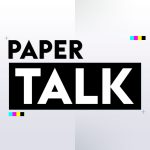Rep. Adam Schiff (D–Calif.) yesterday said he is “demanding action” in response to an “unacceptable” rise in bigoted slurs on Twitter since Elon Musk took over the platform in late October. Musk responded by taking issue with the evidence that Schiff cited, saying “hate speech impressions are actually down by 1/3 for Twitter now vs prior to acquisition.” What he should have said is that government officials in a free society have no business demanding the suppression of speech they do not like.
“We are deeply concerned about the recent rise in hate speech on Twitter,” Schiff and Rep. Mark Takano (D–Calif.) write in a letter to Musk. “Analysis by independent researchers indicates Twitter has become an increasingly toxic place for our constituents, and we are reaching out to you to understand the actions Twitter is taking to combat this increase in harmful content.”
Schiff and Takano ostensibly are just asking questions and urging Musk to step up enforcement of Twitter’s ban on “hateful conduct.” But they are doing that in their official capacity as members of Congress, a job that gives them no authority to police speech or insist that anyone else do so. To the contrary, the First Amendment explicitly bars Congress from “abridging the freedom of speech.” By publicly pressuring Musk to censor “hate speech,” which is indisputably covered by the First Amendment, Schiff and Takano are trying to indirectly accomplish something that the Constitution forbids.
Because government officials have the power to make life difficult for social media companies through regulation, litigation, and legislation, their demands for “action” always carry an implicit threat. Schiff and Takano’s letter is an example of the “jawboning against speech” that Cato Institute policy analyst Will Duffield describes in a recent report. “Government officials can use informal pressure—bullying, threatening, and cajoling—to sway the decisions of private platforms and limit the publication of disfavored speech,” Duffield notes. “The use of this informal pressure, known as jawboning, is growing. Left unchecked, it threatens to become normalized as an extraconstitutional method of speech regulation.”
Schiff is working hard to advance that process. “What steps is your company taking in response to the recent rise in hate speech on your platform and how do you plan to make these decisions available to the public?” he and Takano ask. “Additionally, what is your timeline for rolling out any of these changes?” They also want information about “Twitter’s plan to increase safety for its users, and more specifically the LGBTQ+ community and the Jewish community”; “the current process for enforcing content moderation on your platform”; Twitter’s “current capability and capacity to handle the risks arising from the extreme rise in hate speech”; and its “current risk-assessment process and response timeline for viral hate speech and disinformation.”
Musk could reasonably respond that none of this is any of Schiff and Takano’s business, a stance that would strike a blow against this “extraconstitutional method of speech regulation.” That position would be consistent with Musk’s decision to rescind Twitter’s ban on “COVID-19 misinformation,” a nebulous policy that invited censorship by proxy. Instead, Musk is getting bogged down in a debate that pits the evidence Schiff favors, which comes mainly from tallies of slur-containing tweets and retweets by the Center for Countering Digital Hate, against internal Twitter data on “hate speech impressions.”
Musk himself seems confused about the issues at stake here. He tends to conflate “freedom of speech” with freedom from private content restrictions, which puts him in a bind as a self-declared “free speech absolutist” who is not willing to let people say whatever they want on Twitter, lest the platform become a “free-for-all hellscape.” Here he is trying to reconcile that perceived contradiction: “New Twitter policy is freedom of speech, but not freedom of reach. Negative/hate tweets will be max deboosted & demonetized, so no ads or other revenue to Twitter. You won’t find the tweet unless you specifically seek it out, which is no different from rest of Internet.”
While Musk is inclined toward lighter content moderation in some areas, he is still avowedly determined to enforce the “hateful conduct” ban. “Twitter’s strong commitment to content moderation remains absolutely unchanged,” he tweeted last month. “In fact, we have actually seen hateful speech at times this week decline *below* our prior norms, contrary to what you may read in the press.”
The suspension of Ye, the music and fashion tycoon formerly known as Kanye West, for a series of antisemitic tweets is the most conspicuous example of Musk’s “strong commitment” to eliminating “hateful speech.” But Musk’s explanation of that decision suggests he does not really understand how free speech works.
“At a certain point, you have to say what is incitement to violence,” Musk said during a Twitter Spaces conversation on Saturday, “because that is against the law in the U.S. You can’t just have a ‘let’s go murder someone’ club. That’s not actually legal.”
That gloss implies that Twitter’s content moderation is limited to speech that fits judicially recognized exceptions to the First Amendment, which is plainly not true. Ye’s anti-Jewish remarks and imagery did not qualify as illegal “incitement” by any stretch of the imagination. Under the test that the Supreme Court established in the 1969 case Brandenburg v. Ohio, even advocating criminal conduct (which Ye did not do) is constitutionally protected unless it is both “directed” at inciting “imminent lawless action” and “likely” to do so.
Twitter’s “hateful conduct” policy sweeps much more broadly. “You may not promote violence against or directly attack or threaten other people on the basis of race, ethnicity, national origin, caste, sexual orientation, gender, gender identity, religious affiliation, age, disability, or serious disease,” it says. “We also do not allow accounts whose primary purpose is inciting harm towards others on the basis of these categories.” Also forbidden: “hateful imagery and display names.”
Ye’s tweets, which included a Star of David with a swastika at its center and his announcement that it was time to go “death con 3 On JEWISH PEOPLE,” pretty clearly ran afoul of that policy. But they did not even come close to meeting the Brandenburg test.
Musk’s confusion only encourages critics like Schiff and Takano, who portray bigoted speech as a “human safety” issue and warn that “harmful rhetoric” fosters violence. “After the Colorado Springs Shooting, in which the LGBTQ+ community was specifically targeted, we saw anti-LGBTQ+ hate become viral on Twitter,” they say. “We are concerned about the individual and community harm arising from Twitter, including how that could spill from online into real life.” This is the same connection that Musk draws when he describes Ye’s antisemitic remarks as “incitement to violence.”
Since Twitter, as a private business, is not bound by the First Amendment, Musk is free to make any decisions he wants about content moderation. We, in turn, are free to criticize those decisions, free to debate the significance of the data cited by the Center for Countering Digital Hate, free even to wonder whether it is wise or practical to enforce a policy like Twitter’s. We are also free to eschew Twitter because we don’t like its moderation practices, whether because they are too strict, because they are not strict enough, or because they are too arbitrary and haphazard.
Schiff, by contrast, is bound by the First Amendment when he flexes the powers of his office, which he is clearly trying to do when he writes this sort of letter on official stationery in his official capacity. Likewise when legislators castigate the executives of social media companies at congressional hearings for failing to crack down hard enough on “hate speech” or when executive-branch officials publicly and privately pressure those companies to censor “misinformation” they view as a threat to public health.
Glenn Greenwald laments that “dictating to social media companies what they can and can’t platform, how they must censor, the role Democratic politicians play in all this, is just assumed as normal.” Musk is well-positioned to challenge that assumption, and he could start by telling Schiff and Takano to mind their own business.
The post Adam Schiff Attempts Censorship by Proxy, ‘Demanding Action’ To Suppress ‘Hate Speech’ on Twitter appeared first on Reason.com.







